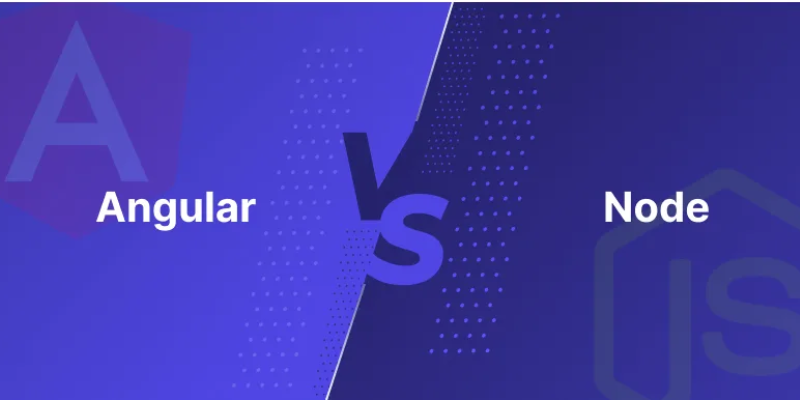
Introduction:
In the dynamic realm of web development, choosing the right technology stack is paramount. Node.js and Angular stand out as two powerful players, each offering distinct advantages. This blog embarks on a journey to unravel the intricacies of Node.js and Angular, exploring their features, use cases, and how they complement or contrast with each other. Whether you’re a seasoned developer or a novice entering the world of web development, understanding the nuances of Node.js and Angular is essential for making informed decisions in your projects.
Building a Foundation in Angular
Angular, developed and maintained by Google, is a comprehensive front-end framework. Individuals seeking expertise in Angular often opt for specialized training like AngularJS Training in Chennai to gain insights into its architecture, components, and the principles of declarative programming. This section introduces Angular and sets the stage for a deeper comparison with Node.js.
Revolutionizing Server-Side Development
Node.js, on the other hand, is not a framework but a runtime environment that enables server-side JavaScript execution. It has gained widespread popularity for its asynchronous, event-driven architecture. This part of the blog delves into the fundamental concepts of Node.js, emphasizing its role in server-side development and how it differs from traditional server technologies.
Exploring the Model-View-Controller Paradigm
Angular follows the Model-View-Controller (MVC) architecture, providing a structured approach to building dynamic web applications. Professionals often seek specialized training, such as MVC Training in Chennai, to grasp the intricacies of Angular’s architecture. This section dissects the MVC paradigm within Angular, shedding light on how it simplifies development and maintenance.
Leveraging Asynchronous Programming
One of Node.js’s standout features is its asynchronous, non-blocking I/O model. This section explores how Node.js utilizes event-driven programming to handle concurrent requests efficiently. Developers appreciate the scalability and performance benefits of Node.js, making it an ideal choice for applications with high levels of concurrency.
Weighing the Pros and Cons
This pivotal section provides an in-depth comparison between Angular and Node.js, evaluating their strengths and weaknesses. From development speed and scalability to community support and ease of learning, each aspect is scrutinized to help developers make informed decisions based on their project requirements.
Complement your exploration of Node.js with courses like the CCNA Course in Chennai, offering insights into networking fundamentals. Understanding networking concepts enhances your ability to optimize communication in Node.js applications.
Clarifying Development Roles
Angular primarily focuses on front-end development, offering a robust framework for building user interfaces. In contrast, Node.js excels in back-end development, handling server-side logic. This part of the blog clarifies the distinct roles these technologies play in the development stack and how they can seamlessly integrate for full-stack solutions.
Showcasing Angular’s Application Scenarios
Angular finds application in a myriad of use cases, from enterprise-level applications to single-page applications (SPAs). This section showcases real-world scenarios where Angular shines, emphasizing its versatility and suitability for various project requirements.
Leveraging Node.js for Server-Side Scaling
Node.js is celebrated for its efficiency in building scalable APIs. This section explores how Node.js is employed in building server-side applications, handling numerous concurrent connections efficiently. Developers appreciate its ability to scale horizontally, making it an excellent choice for applications with varying workloads.
Conclusion:
In conclusion, the choice between Node.js and Angular hinges on project requirements, development roles, and the specific goals of the application. While Angular Training in Coimbatore may be the preferred choice for front-end developers crafting dynamic user interfaces, those venturing into server-side development may find the asynchronous prowess of Node.js more aligned with their needs.
In conclusion, both Node.js and Angular have established themselves as influential players in the web development realm. Whether crafting engaging user experiences with Angular or building scalable server-side solutions with Node.js, the crucial factor lies in comprehending their respective strengths and using them strategically to develop robust, efficient, and contemporary web applications.
Angular excels in client-side development, providing a framework for creating dynamic and interactive user interfaces. On the other hand, Node.js shines in server-side development, offering a platform for building fast and scalable server applications. The synergy between these technologies is evident in full-stack development, where developers leverage both to create end-to-end solutions.
Success in web development hinges on recognizing when to deploy Angular for its front-end prowess and when to utilize Node.js for its server-side efficiency. By understanding the strengths of each and judiciously combining them, developers can harness the full potential of both Node.js and Angular to deliver high-performance web applications that meet the demands of modern digital experiences.
